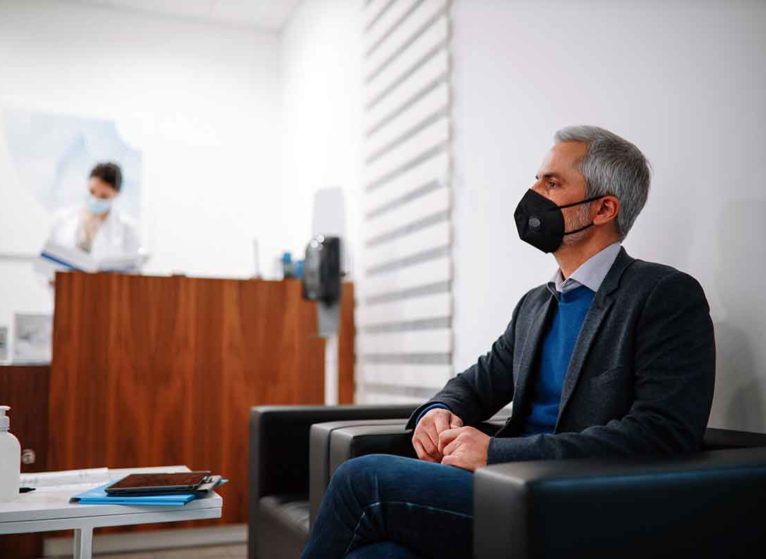You might not think of yourself as having breasts. But everyone has breast tissue. That means everyone can get breast cancer. It doesn't matter your sex or gender.
With pink ribbons everywhere, you may feel left out or even embarrassed when it comes to dealing with breast cancer. If you're a transgender man who's had top surgery, you might think you don't have to worry about breast issues anymore.
Whatever your background, if you identify as male, you can't ignore your breast cancer risk.
Breast Cancer in Men: The Basics
Male breast cancer is rare. Still, about 2,550 new cases occur every year, according to the American Cancer Society (ACS). Aging is one of the main risk factors. The average age of a male breast cancer diagnosis is 72.
Genetics also play a role. Someone with a family member, male or female, who has had breast cancer is at a higher risk. Men can inherit the BRCA1 or BRCA2 gene, also called the breast cancer gene. Other risk factors include excessive alcohol consumption and obesity.
Everyone Has Some Breast Tissue
Men have breast tissue. Everyone does. Men also have ducts (the areas that carry milk to the nipple) and sometimes lobules, but they don’t function. Breast cancer can develop in the ducts or the lobules. It can also enter the lymphatic system and spread to other parts of the body.
Even if you've had a surgery to remove breast tissue before, you still carry some risk.
What Men Should Look For
According to the ACS, a lump is the most common symptom, but it’s not the only one. Also look for:
- Discharge from the nipple
- Redness of the skin around the nipple
- The nipple turning inward
Men Can Get Mammograms, Too
If you notice any changes to the nipple or feel a lump, it’s best to have it checked out by a doctor. You may undergo tests to find out more information, starting with a mammogram.
Yep, men can get mammograms, too. And trans men definitely should get them on a routine basis.
A mammogram is an imaging test in which your breast tissue is pressed between two plates. This can be challenging for men and a bit uncomfortable. You may have an ultrasound on your chest to confirm any findings as well.
Finally, a biopsy will confirm a diagnosis of breast cancer. A biopsy surgically removes tissue from the lump or chest and tests it in a lab to look for cancer cells.
Trans Men & Mammograms
Past experiences might make you wary of seeking the screenings you need. But as a transgender man, you still need to get mammograms. At UVA Health, we strive to make your experience getting a mammogram affirming and inclusive. Learn more about our transgender healthcare.
Treating Male Breast Cancer
Surgery is usually the most common treatment for breast cancer in men. You may need a mastectomy, which means removing all or some of the breast tissue. This can include removing the nipple. If the cancer has spread beyond the breast tissue, surgery will also remove affected lymph nodes.
You may also have hormone therapy, chemotherapy, radiation, or targeted therapy to kill the cancer cells.
Be a Man - Get a Mammogram
Get care from teams who have the experience to give you an accurate screening.
Male Breast Cancer Challenges
Getting a cancer diagnosis is hard, but getting a diagnosis for a disease thought of as female-oriented can be challenging for men. It’s difficult to explain to other people, who may not understand what you’re going through. In a study from the American Journal of Men’s Health, some men felt more comfortable referring to their chest and saying “chest cancer,” rather than breast cancer.
Treatment can also lead to body image issues. It takes time to adjust to how your body looks after surgery when one side of your chest is smaller or flatter than the other. Talk to your doctor about options to achieve a look you feel more comfortable with, such as having a nipple tattooed.
Being diagnosed with a rare form of any cancer can make you feel alone. Reach out for support, whether from family and friends, or support groups or online groups of others going through the same thing. You don’t have to go through this alone, and there are others out there who have similar experiences.
This post was originally published December 2018 and updated October 2021.

